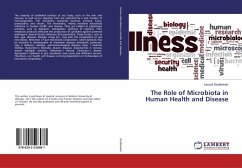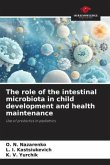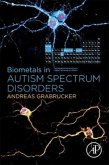The majority of epithelial surfaces of our body, such as the skin and mucosa, as well as our digestive tract are colonized by a vast number of microorganisms. The microbiota comprises bacteria, archaea, fungi, protozoans, and viruses. The microbiota, mainly intestinal microbiota influence in human health and disease. They are helpful in physiologic activities, such as digestion, metabolism, synthesis of vitamins. Their metabolic products stimulate the production of cytokines against potential pathogens. Several factors influence this population. These factors, such as diet, age, diseases, lifestyle, drugs etc., may alter the composition of gut microbiota. Alteration of gut microbiota composition, called dysbiosis may be involved in development of metabolic diseases (metabolic syndrome, type 2 diabetes, obesity), autoimmunological diseases (type 1 diabetes mellitus, Hashimoto's thyroidis, Graves' disease), disturbances in nervous system (multiple sclerosis, Alzheimer's disease, Parkinson's disease, depression). Dysbiosis in gut microbiota may cause also different cancers. Therefore, our health and disease is strong dependent on homeostasis of microbiota composition.
Bitte wählen Sie Ihr Anliegen aus.
Rechnungen
Retourenschein anfordern
Bestellstatus
Storno








